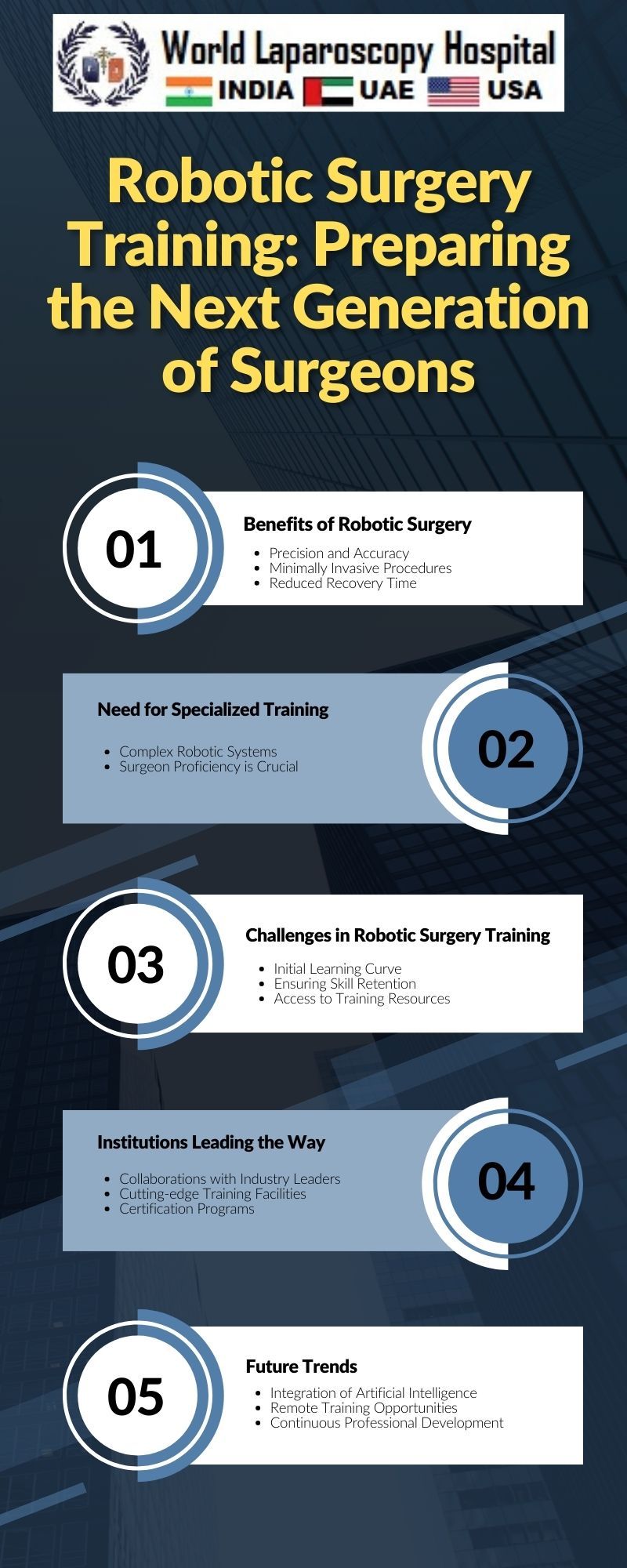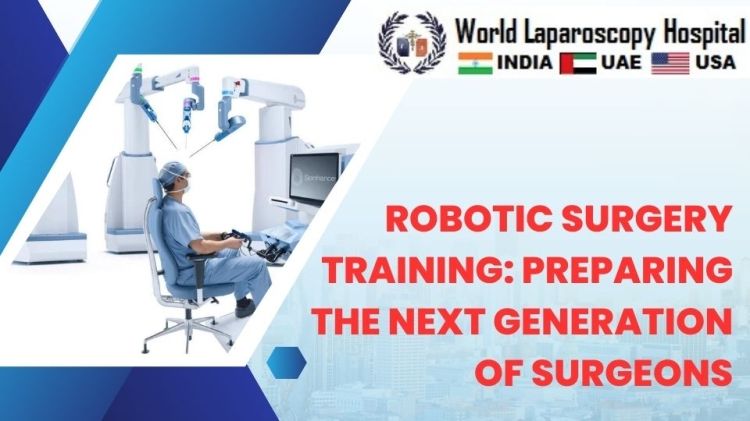Robotic Surgery Training: Preparing the Next Generation of Surgeons
Introduction:
In the ever-evolving landscape of medical technology, robotic surgery has emerged as a groundbreaking advancement, revolutionizing the field of surgery. As we delve into the 21st century, the integration of robotics into surgical procedures is reshaping the way we approach healthcare. A critical aspect of this transformation is the training of the next generation of surgeons who will navigate the delicate intersection of human skill and robotic precision. This article explores the intricate world of robotic surgery training, shedding light on the methodologies, challenges, and the immense potential it holds for enhancing surgical outcomes.

The Rise of Robotic Surgery:
The genesis of robotic surgery can be traced back to the early 2000s when the da Vinci Surgical System made its debut. This robotic platform, developed by Intuitive Surgical, provided surgeons with enhanced dexterity, precision, and visualization during minimally invasive procedures. Over the years, robotic surgery has expanded its reach across various specialties, including urology, gynecology, and general surgery.
As the adoption of robotic-assisted procedures has surged, so too has the demand for proficient robotic surgeons. Traditional surgical training, which heavily relies on hands-on experience and mentorship, faced the challenge of incorporating robotics into its curriculum. Consequently, the need for specialized training programs to equip surgeons with the skills required to operate these sophisticated robotic systems became evident.
The Components of Robotic Surgery Training:
Robotic surgery training encompasses a multifaceted approach, integrating theoretical knowledge, simulated exercises, and hands-on experiences. Let's delve into the key components that constitute a comprehensive robotic surgery training program:
Theoretical Foundation:
Robotic surgery begins with a solid theoretical foundation. Surgeons-in-training must grasp the principles of robotic systems, understanding the mechanics, instrumentation, and the unique interface of the robotic console. This theoretical knowledge serves as the groundwork for practical application.
Simulated Environments:
Simulation plays a pivotal role in robotic surgery training. Virtual reality (VR) and augmented reality (AR) simulators provide a risk-free environment where surgeons can hone their skills before entering the operating room. These simulators replicate real surgical scenarios, allowing trainees to navigate through complex procedures, build muscle memory, and refine their hand-eye coordination.
Hands-On Training:
Transitioning from simulation to hands-on training is a critical phase in the robotic surgery learning curve. Trainees work alongside experienced surgeons in the operating room, gaining firsthand experience in managing the robotic console, controlling robotic arms, and executing precise movements. This apprenticeship model ensures a gradual transition from theory to practical application.
Structured Curriculum:
To streamline the learning process, institutions offering robotic surgery training have developed structured curricula. These curricula cover a range of procedures, ensuring that trainees are well-versed in the diverse applications of robotic surgery. The curriculum evolves as technology advances, incorporating the latest innovations and best practices.
Challenges in Robotic Surgery Training:
While the integration of robotics into surgery holds immense promise, it is not without its challenges. The training of surgeons in robotic techniques presents unique obstacles that the medical community must address:
Cost and Accessibility:
Robotic surgical systems come with a hefty price tag, making them inaccessible to many institutions, particularly in resource-limited settings. Training programs must navigate the financial constraints associated with acquiring and maintaining these systems while ensuring accessibility for a diverse range of aspiring surgeons.
Standardization of Training:
As robotic surgery training programs proliferate, there is a pressing need for standardization. Variability in training quality and content across institutions can impede the overall effectiveness of robotic surgery education. Establishing standardized guidelines and accreditation processes can help maintain consistency and uphold the quality of training programs.
Integration into Residency Programs:
The integration of robotic surgery training into traditional surgical residency programs poses a logistical challenge. Residency programs are already structured to cover a broad spectrum of surgical techniques, and finding the right balance to incorporate robotic training without compromising other essential skills requires thoughtful planning.
Ethical Considerations:
The introduction of robotics in surgery raises ethical considerations, particularly concerning patient safety. Ensuring that trainees are adequately supervised during their initial robotic procedures is crucial to mitigating potential risks. Striking the right balance between autonomy and supervision is a delicate yet vital aspect of robotic surgery training.
The Future of Robotic Surgery Training:
As technology continues to advance, the future of robotic surgery training holds exciting possibilities. Here are some key trends and developments that are shaping the trajectory of this field:
Artificial Intelligence (AI) Integration:
The integration of artificial intelligence into robotic surgery training is on the horizon. AI algorithms can analyze and provide feedback on a surgeon's performance, offering personalized insights for improvement. This symbiotic relationship between AI and human skill can accelerate the learning curve for aspiring robotic surgeons.
Remote Training and Telementoring:
The evolution of telemedicine extends to surgical training. Remote training platforms and telementoring systems enable experienced surgeons to guide and mentor trainees from afar. This not only enhances accessibility to expertise but also facilitates collaborative learning across geographical boundaries.
Haptic Feedback Enhancement:
Haptic feedback, the sense of touch in a virtual environment, is a crucial element in robotic surgery. Advances in haptic technology aim to provide a more realistic tactile experience for trainees, allowing them to feel the resistance, texture, and feedback associated with various surgical maneuvers.
Interdisciplinary Collaboration:
Robotic surgery is not limited to a single specialty. As the technology becomes more versatile, interdisciplinary collaboration in training becomes essential. Surgeons, engineers, and educators must collaborate to design comprehensive training programs that address the unique challenges and nuances of different surgical specialties.
Conclusion:
The integration of robotics into surgical practice represents a paradigm shift in the field of healthcare. Robotic surgery training is the linchpin for ensuring that surgeons are equipped with the skills necessary to harness the full potential of these technological marvels. As we navigate the intricate landscape of robotic surgery education, addressing challenges and embracing future trends, we pave the way for a new era in surgical expertise—one where precision and innovation converge to redefine the possibilities of medical intervention. The next generation of surgeons stands at the forefront of this transformative journey, poised to make history in the operating rooms of the future.


